International
New Research Further Demonstrates Problems with Surface Temperature Records and Models
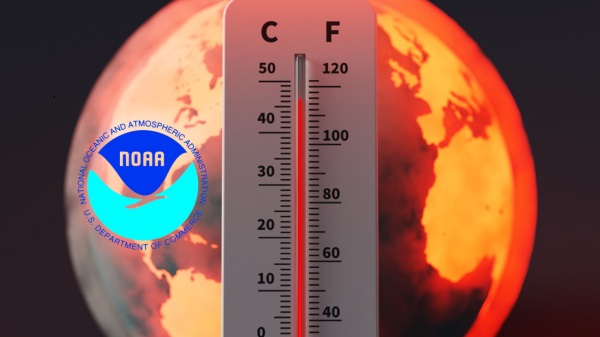
From Heartland Daily News
It is not just that the Earth has warmed less than biased temperature measurements indicate, it has also warmed less than climate models have said it should for the amount of CO2 humans have emitted into the atmosphere.
Climate Change Weekly has long detailed the severe problems with surface temperature records, driven largely by the Urban Heat Island (UHI) effect compromising the integrity of the vast majority of temperature stations.
In two studies for The Heartland Institute, meteorologist Anthony Watts detailed the extent to which the surface station record in the United States is compromised by station siting that violates the National Oceanic and Atmospheric Administration’s (NOAA) own standards for the proper, unbiased, siting of surface stations. Watts’ initial 2009 study found that 89 percent of the surface stations in NOAA’s and the National Weather Service’s (NWS) system were poorly sited and biased. After the study, NOAA/NWS closed some of the most severely compromised, ridiculously sited stations highlighted in report. Indeed, NOAA had already recognized the problem and had prior to the first study’s release established the U.S. Climate Reference Network (USCRN), consisting of 137 climate observing stations with the best equipment, existing in stable locations unlikely to ever be compromised by nearby development. At the same time, however, NOAA also added thousands of previously unregulated stations established and maintained by others to its system.
The larger system provides more comprehensive coverage, but the vast majority of the stations are, unsurprisingly, poorly sited. As a result, Watts’ follow up survey of NOAA’s surface station network found 96 percent of the stations used to determine U.S. average temperatures are biased upward due to poor siting. The UHI has compromised them.
How bad is the problem? As explained in an article in The Epoch Times, the U.S. Environmental Protection Agency has estimated that “daytime temperatures in urban areas are 1–7 degrees Fahrenheit higher than temperatures in outlying areas, and nighttime temperatures are about 2–5 degrees Fahrenheit higher.” Whereas the temperature record from the USCRN indicates little or no temperature change during its 18 years of existence, the broader network supports claims that the U.S. is warming. By the way, as detailed in previous Climate Change Weekly posts, what’s true for the United States is also true for the global surface station network and, since 2015, for the ocean temperature measurement system. Both are biased by poor siting compromising the validity of the temperatures measured.
A new report from the Heritage Foundation by Roy Spencer, Ph.D., a long-time friend of The Heartland Institute, principal research scientist at the University of Alabama in Huntsville, and currently a visiting fellow in The Heritage Foundation’s Center for Energy, Climate, and Environment, looks at a slightly different problem with temperatures: the difference between measured warming and climate model temperature projections. It is not just that the Earth has warmed less than biased temperature measurements indicate, it has also warmed less than climate models have said it should for the amount of CO2 humans have emitted into the atmosphere.
Spencer’s research found recent warming is likely not due solely to human greenhouse gas emissions, and the warming experienced is substantially less than climate models have predicted—43 percent less, in fact. And that’s even when readings from the UHI-biased stations are included.
Spencer examined summertime temperature readings for 12 Corn Belt states in the United States. Each of the 36 models he compared to measured warming by surface stations, weather balloons, and global satellites overstated the amount of warming experienced, with most of the models off by 100 percent or more. (See the graphic, below)

Spencer is also working on a large-scale study to explain the discrepancy between urban and rural temperature stations globally, and how that plays into recent claims temperatures are setting all-time records. His preliminary data suggests measured warming is strongly correlated to population density. As cities grow, and populations increase and become more densely packed, temperatures in urban and suburban areas rise faster than in the surrounding countryside, once again confirming Watts’ conclusion that the temperature record is compromised by UHI.
If Watts’ and Spencer’s research are correct, not only do climate models “run too hot,” as even some of their proponents have been forced to admit, but the regularly reported surface station record is running too hot as well.
conflict
One of the world’s oldest Christian Communities is dying in Syria. Will the West stay silent?

This article supplied by Troy Media.
 By Susan Korah
By Susan Korah
The murder of Christians during Mass demands more than statements. Canada and its allies must act or share the blame
The June 22 suicide bombing at St. Elias Greek Orthodox Church in Damascus, which killed more than 25 people and injured over 60 during Mass, has devastated Syria’s Christian community and raised urgent concerns about their safety in a fragile, post-Assad Syria.
Activists close to the victims say the attack exposes the failure of the transitional Syrian government to protect religious minorities and underscores the need for immediate international pressure to hold the regime accountable. Without it, they warn, Syria’s ancient Christian presence could vanish.
Syria is home to one of the oldest Christian communities in the world, dating back to the first century. Though once numbering in the millions, its Christian community’s population has plummeted due to years of war, persecution and mass emigration. The attacker, linked to a shadowy extremist group called Saraya Ansari al-Sunna, opened fire on the 350-person congregation before detonating an explosive vest. The massacre has shattered the cautious optimism held by some Christians who believed Syria had turned a corner after 14 years of civil war.
“Immediately after the vicious attack, no official from the al-Sharaa government came forward to offer support except the only Christian in the cabinet, Hind Kabawat, Minister of Social Affairs,” said a Syrian Christian activist in the Toronto area who requested anonymity as he feared for his safety, even though he had emigrated to Canada years ago and serves on the refugee committee of a Melkite (Eastern rite Catholic) church.
“Our Patriarch John X issued a statement, respectfully appealing to the interim government to protect the lives and religious freedom of all Syria’s
faith groups,” he said.
Mario Bard, head of information with the pontifical charity Aid to the Church in Need Canada, said it’s imperative for the international community to take action.
“What a horrific attack,” he said. “Once again, a Christian minority community in the Middle East finds itself targeted. The local Church is already speaking of the death of its martyrs. It is a testament to the incredible faith, resilience and unshakable conviction of these communities. But that does not mean we can remain idle—far from it. ACN urges the international community not to look away and to act to ensure the protection of all religious communities in the Middle East.”
While urging governments to act, Bard reiterated that ACN will stand by its partners in Syria.
“We will continue to support the Christian community in Syria, as we have since the beginning of the war, including the Greek Orthodox Church of Antioch, with whom we have stood in the past and will continue to stand with now,” he said.
Nuri Kino of A Demand for Action, the Sweden-based humanitarian and advocacy organization he founded over 10 years ago to rally international support for Christians in Syria and Iraq targeted by ISIS for genocide, says the attack is not an isolated incident but part of a broader pattern in post-Assad Syria.
“It should be a wake-up call for the international community,” he said. “We are producing video clips and a report documenting atrocities against Christians after Assad’s fall, which will be distributed to governments that defend human rights. Our aim is to pressure the international community to ensure that financial aid given to Syria is conditional on the regime protecting the security and equal rights of Christians and all other citizens.”
As a major donor to Syria’s humanitarian recovery, Canada has leverage to tie funding to human rights protections. But so far, the Canadian government’s response has been muted, save for the usual diplomatic clichés
“Canada strongly condemns the terrorist attack at St. Elias Church in Damascus, which killed and injured civilians attending Mass on June 22, 2025. The targeting of civilians in a place of worship is deplorable,” said an email from the media relations team in response to a question posed to Foreign Affairs Minister Anita Anand. “Canada stands in solidarity with Syria’s Christian community and encourages the Syrian transitional authorities to work with partners to strengthen protections for all religious and ethnic minorities. Civilians must be protected, the dignity and human rights of all religious and ethnic groups must be upheld and perpetrators must be held accountable.”
Global Affairs has acknowledged that Syria’s security apparatus is under resourced and is not in full control of the country, as have others.
“The government’s military and security forces have not yet become organized under a central command and there is a power vacuum in that space,” said Ouhanes Shehrian, a Christian journalist based in Aleppo, Syria. “Different militias are in control of different parts of Syria, and this is a problem for the government.”
Although President Ahmed al-Sharaa’s HTS (Hayat Tahrir al-Sham) coalition led the effort to topple Assad, it now governs amid deep internal fractures. Al-Sharaa has tried to distance his party from its Islamist roots and has made some gestures toward minority groups, but observers warn that extremist factions still exert influence across various regions.
Canada, the U.S. and the EU lifted sanctions on Syria after the fall of the Assad government, a move Syriac Catholic Archbishop Jacques Mourad of Homs praised as a hopeful step for the Syrian people. Canada pledged $84 million in new funding for humanitarian assistance and temporarily eased existing sanctions to support democratization, stabilization and aid delivery during this transitional period.
Unless the international community demands real reforms and enforces conditions tied to aid, Christian leaders fear a future where minority
communities are simply left to endure or vanish.
As one local priest said after the bombing, “We prayed for peace, and we thought it had come. But now we bury our dead and wonder if we were wrong to hope.” Without swift action, what remains of Syria’s Christian presence may not survive the peace.
Susan Korah is Ottawa correspondent for The Catholic Register, a Troy Media Editorial Content Provider Partner
Troy Media empowers Canadian community news outlets by providing independent, insightful analysis and commentary. Our mission is to support local media in helping Canadians stay informed and engaged by delivering reliable content that strengthens community connections and deepens understanding across the country.
Food
Trump says Coca-Cola will switch to real cane sugar in U.S.

Quick Hit:
President Trump announced Wednesday that Coca-Cola will start using real cane sugar in its U.S. beverages, calling the decision “a very good move.” In a Truth Social post, Trump said he had spoken directly with the company and thanked its leadership for the change.
Key Details:
- Trump wrote, “I have been speaking to Coca-Cola about using REAL Cane Sugar in Coke in the United States, and they have agreed to do so.”
- He praised the company’s leadership, saying, “This will be a very good move by them — You’ll see. It’s just better!”
- U.S. Coca-Cola currently uses high fructose corn syrup, unlike versions in Mexico and the UK that use cane sugar.
Diving Deeper:
President Donald Trump on Wednesday said that Coca-Cola is set to bring real cane sugar back into its U.S. soft drinks — a switch many longtime Coke fans have long desired. Posting on Truth Social, Trump wrote: “I have been speaking to Coca-Cola about using REAL Cane Sugar in Coke in the United States, and they have agreed to do so.”
The president continued, “I’d like to thank all of those in authority at Coca-Cola. This will be a very good move by them — You’ll see. It’s just better!”
Coca-Cola has used high fructose corn syrup in the United States since the 1980s, largely due to domestic corn subsidies and the higher cost of imported sugar. However, the cane sugar version — still available in Mexico and much of Europe — remains popular among American consumers, with many saying it offers a cleaner, smoother flavor.
Trump’s comments immediately drew attention both for the policy implication and the personal touch. Though the president is known for his affinity for Diet Coke, which contains no sugar at all, his interest in restoring cane sugar to the classic formula taps into a broader nostalgia many Americans have for pre-1980s Coke.
No formal announcement has yet been made by Coca-Cola itself, and it remains unclear if the reported agreement pertains to all Coke products or specific regional lines. But Trump’s declaration is already generating buzz among fans of the brand and supporters.
(AP Photo/Lynne Sladky)
-
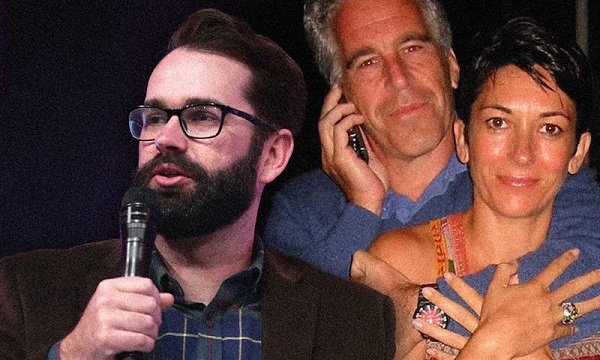
 International2 days ago
International2 days agoMatt Walsh slams Trump administration’s move to bury Epstein sex trafficking scandal
-
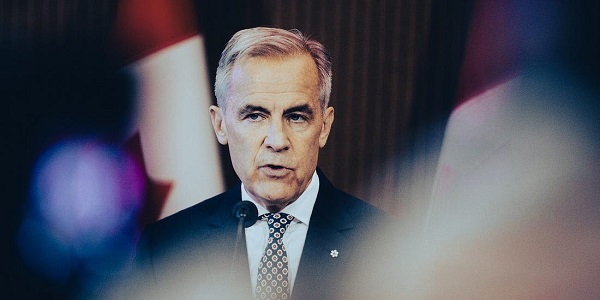
 National2 days ago
National2 days agoDemocracy Watch Blows the Whistle on Carney’s Ethics Sham
-

 Energy1 day ago
Energy1 day agoIs The Carney Government Making Canadian Energy More “Investible”?
-
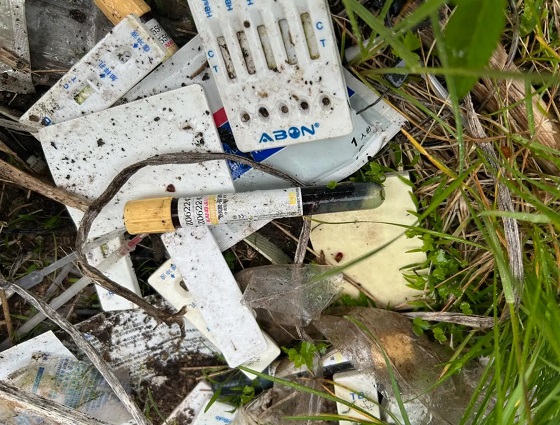
 Immigration1 day ago
Immigration1 day agoUnregulated medical procedures? Price Edward Islanders Want Answers After Finding Biomedical Waste From PRC-Linked Monasteries
-

 Business1 day ago
Business1 day agoDemocracy Watchdog Says PM Carney’s “Ethics Screen” Actually “Hides His Participation” In Conflicted Investments
-
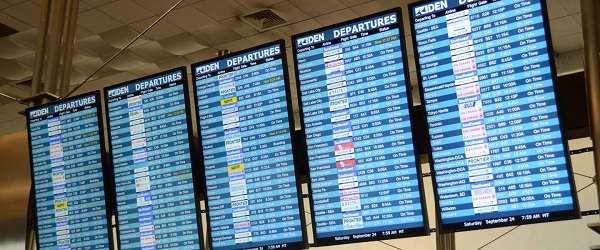
 Business1 day ago
Business1 day agoCompetition Bureau is right—Canada should open up competition in the air
-

 Business1 day ago
Business1 day agoIt’s Time To End Canada’s Protectionist Supply Management Regime
-
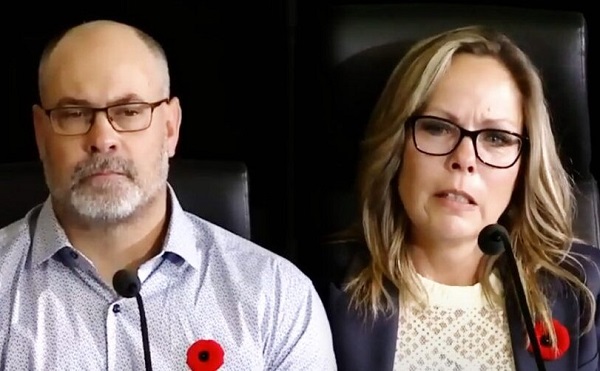
 COVID-191 day ago
COVID-191 day agoFreedom Convoy leaders’ sentencing hearing to begin July 23 with verdict due in August






